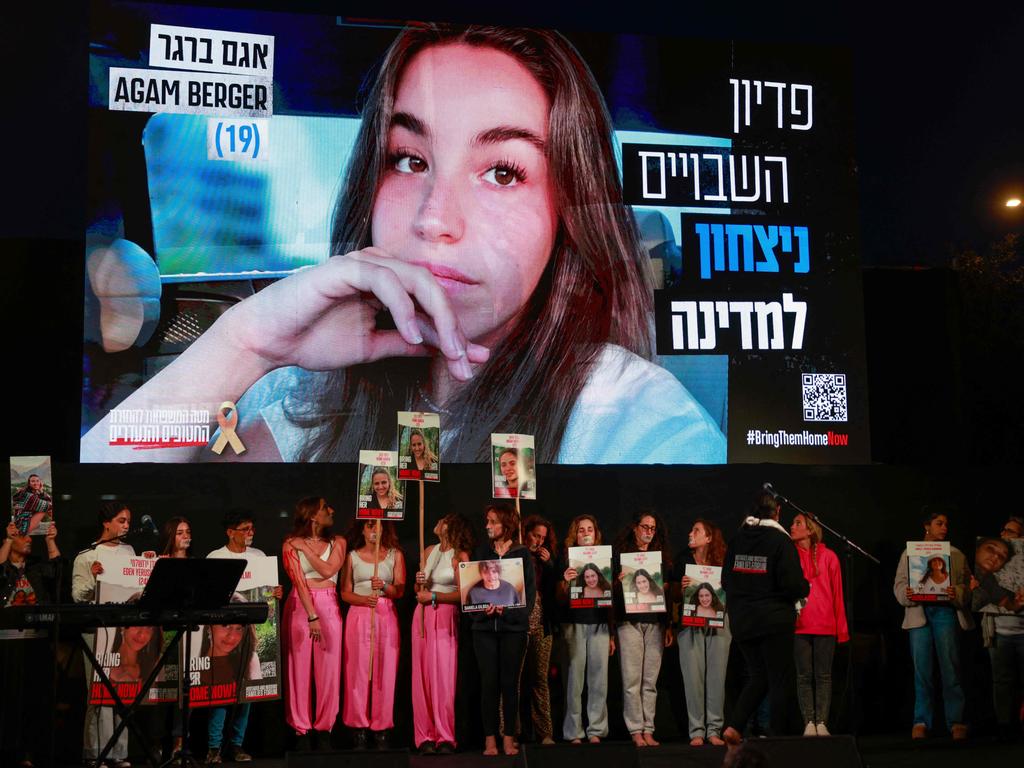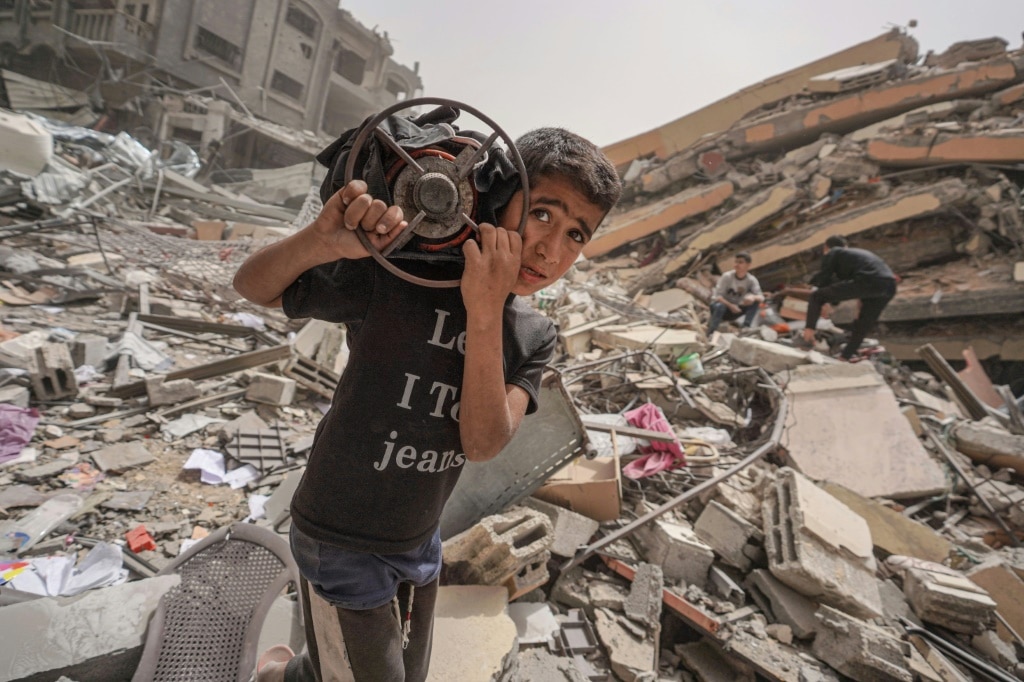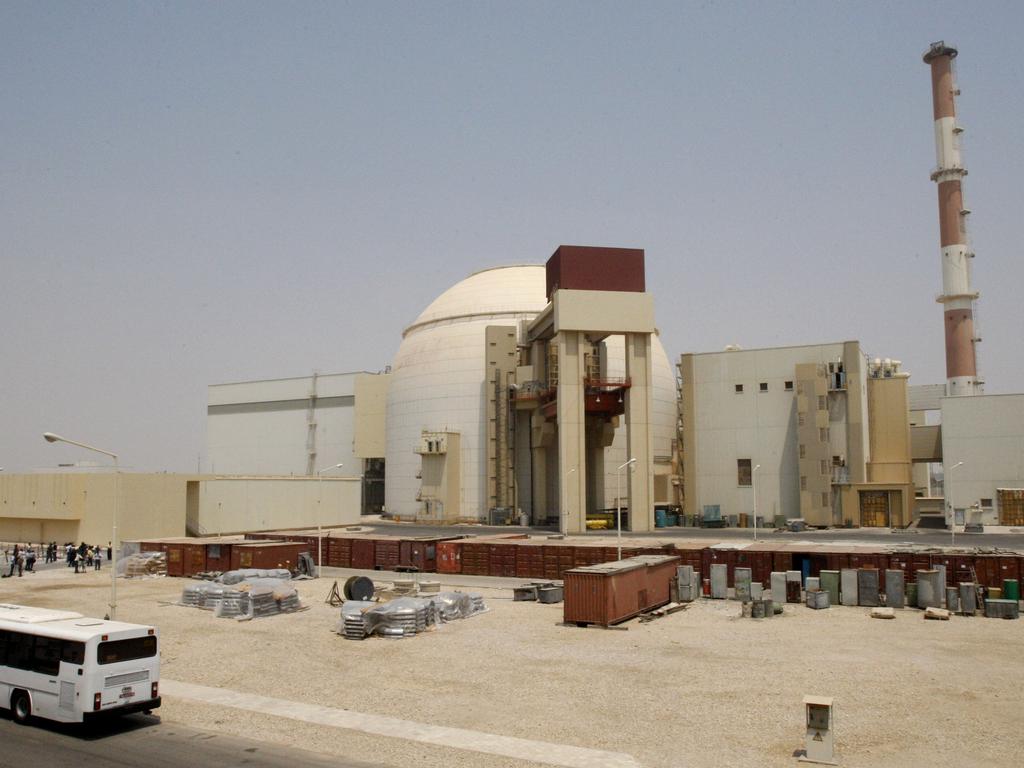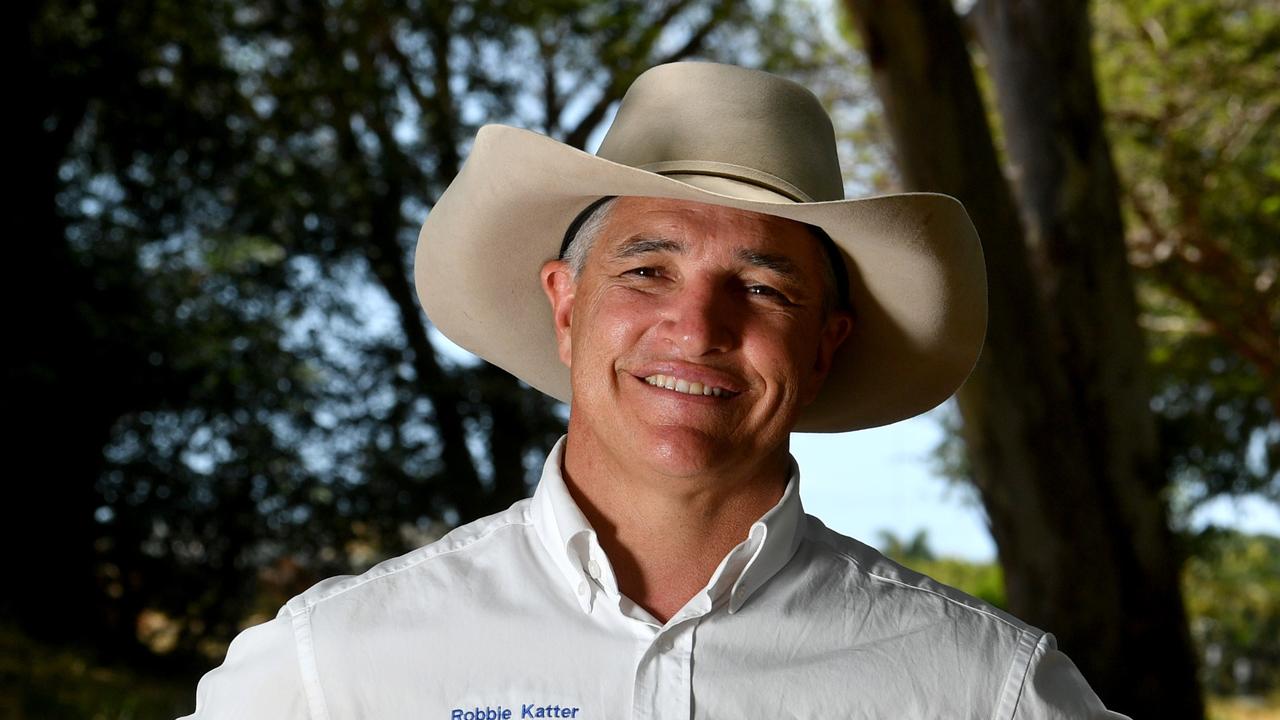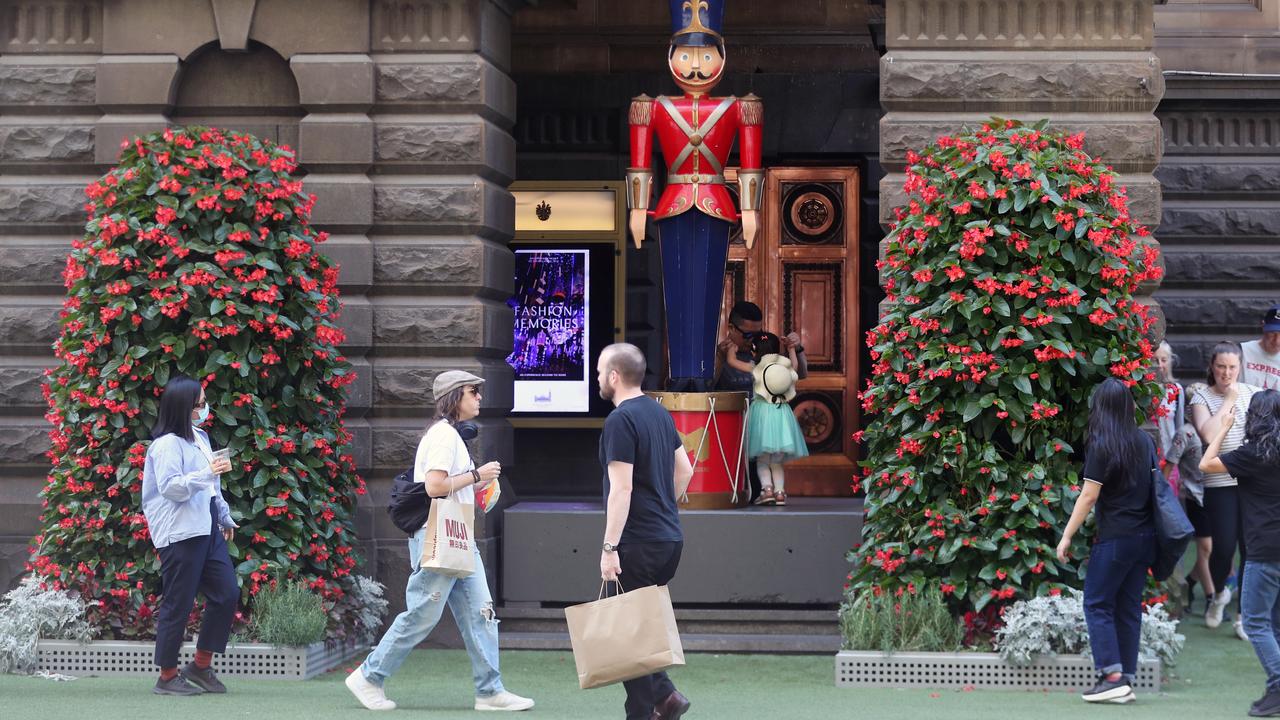Kumbaya does not cut it – we need a tough approach
Pussyfooting about those who would divide us speaks volumes about the warped priorities and cowardice of our leadership.
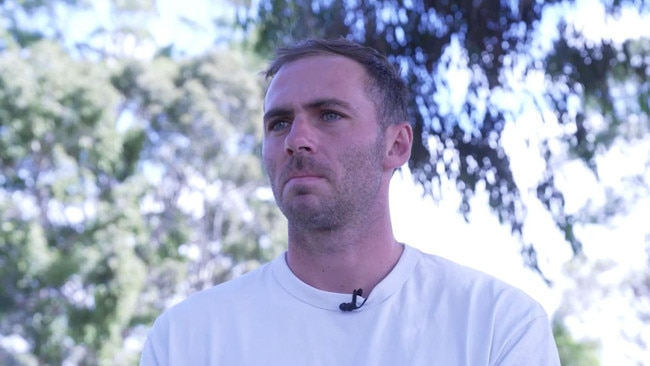
AFL footballer Jeremy Finlayson has been publicly shamed and will not play for Port Adelaide over the next three rounds because he slurred an opponent as a “f****t” last week.
Without excusing the homophobic language, it is worth pointing out that Finlayson apologised promptly, privately and publicly, and that the word was so recently mainstream that it was sung in a worldwide No.1 pop song in the mid-1980s.
Meanwhile other Australians have chanted “Gas the Jews” or “Where’s the Jews?” and celebrated the October 7 atrocities, as did Sheik Ibrahim Dadoun, as a “day of courage, a day of pride, a day of victory” and “the day we’ve been waiting for”, while other Muslim preachers have denounced Jews as “descendants of pigs and monkeys”. Yet the hate merchants face no sanction.
The contrast in our national response speaks volumes about our warped priorities and the cowardice of our leadership. The politically easy, convenient or fashionable causes are tackled with an iron fist, but Islamist extremism gets the kid-gloves treatment.
Our national approach on vitally important issues can be superficially reassuring but negligent in substance. Like teenagers with their first used car, our leaders want to spend up big on the sound system while the tyres go bald and the brake pads wear thin.
Cracking down on extremism is tough. It will draw threats and offend some people. But it must be done. Instead, we have politicians and authorities who prefer tackling the soft targets.
Look at the way Victorian police used rubber bullets, riot gear and pepper spray against vaccine-mandate protesters during the pandemic, and NSW police cracked down hard and broke up lockdown protests. Yet anti-Israel and pro-Hamas protesters are ushered along, including on Sydney streets when they were intent on defiling a public memorial to slain Jews that was to be projected on the Opera House sails.
As a country we do the easy bits with gusto – welcoming migrants and championing our multicultural harmony – but we fail when it comes to the hard challenges like calling out those who undermine our values or intimidate their fellow citizens. It is now more than two decades since 9/11 and we have weathered Bali, London, the Lindt Cafe siege and a dozen other domestic terror attacks taking more than a dozen lives, yet we still have leaders who try to pretend this away with woolly words.
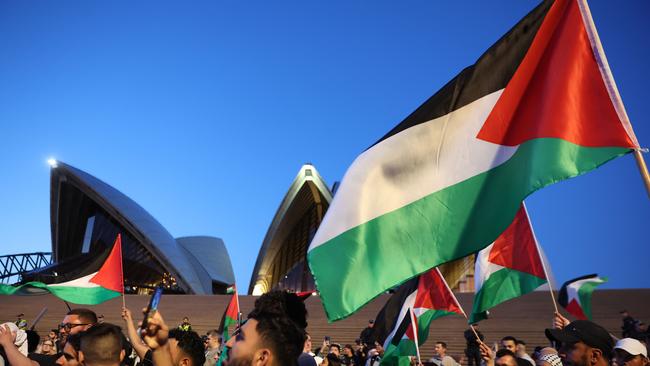
Writing a regular column for this newspaper is both a great privilege and a heavy responsibility, which is why I carefully considered my strong and pessimistic words last week about this country facing “an enemy within” that was an “ongoing threat to our values and democracy” and was being made only worse by the weakness of our governments and authorities.
“We will pay a price for this weakness,” I wrote, “it may not be immediate but it is unavoidable.” It turned out to be immediate, because after the despicable horror of the weekend’s murderous stabbing rampage at Bondi Junction, we were hit by the church stabbing in Sydney’s west, triggering a violent sectarian riot.
Not only was Islamist extremism raising its bloodied hand again on our shores but it also was unleashing the social division its practitioners crave. For that and other reasons this global ideological scourge poses a more telling and difficult challenge to our leaders than the horrific and more deadly Bondi Junction stabbings that appear to be the work of a crazed loner.
After Monday night’s attack, Anthony Albanese used a press conference to affirm “there is no place for violent extremism” and promise support to police and law enforcement authorities. It was the least the Prime Minister could say – passive leadership, if that is not an oxymoron.
“We have overwhelmingly a harmonious society in Australia,” he added. “In my local community people of different faiths live side-by-side and that is overwhelmingly the experience of Australians. It is vital, in my view, that we continue to stress what unites us and that respect for each other be maintained at all times.”
On the contrary, it is time to highlight exactly what divides us. Those who preach, exercise and encourage intolerance are the ones who divide us and they need to be countered or they will succeed. Their aims are evil. And they aspire to undermine our nation as a liberal, pluralist democracy.
Tolerance is fundamental to our national compact – we must always condemn and combat violence and intolerance. That means identification, prosecution and deportation where applicable, too. We need a tough approach. Kumbaya does not cut it.
We need leaders who will draw red lines and promise action when they are crossed. Threatening Jewish communities or celebrating their massacre is crossing a line, as is preaching hatred or making excuses for armed jihad.
“I think we just have to be very clear about what is right and what is wrong,” opposition defence spokesman Andrew Hastie told me this week, “what is acceptable behaviour and what is not acceptable.” Hastie spoke about citizenship being a unique gift that “carries special obligations” and he said our political leaders needed to enforce and remind people of these mutual obligations.
Hastie is right. We always need clarity and leadership, and probably now more than ever.
And this is not only about Islamist extremism. There is a national ambivalence afoot, evident across a range of issues: anti-Semitism, violent crime, drug abuse, mental health crises, child abuse, Indigenous family welfare, racial separatism, judicial processes and political integrity.
There is much to unpack in that list, and there have been plenty of unpalatable developments in this past week. But there is a common theme of spinelessness in the way these issues are being dealt with or, more to the point, are not being confronted.
Leaders are timid about asserting our values. There is a lack of confidence about the essential superiority of the principles and processes that uphold the rule of law under a Western liberal democracy, an almost apologetic deference to other cultures and values, and a propensity to portray everybody as a victim.
We need more respect for law and order and personal responsibility, we must be uncompromising in our demands for tolerance, we need to educate people about the triumphs of our history and our institutions, we need to exert much more control over our immigration program, and we need leadership that shows certitude while encouraging self-reliance and resilience.
Late last year at a jolly dinner in Melbourne an acquaintance who immigrated from South Africa was extolling the virtues of our country. He said most Australians were oblivious to the unparalleled freedoms that enriched our lives, and he insisted on giving me an example.
“In Sydney, when I go to the beach, I now do what other Aussies do,” he explained. “I put my phone and car keys in my hat on the sand with my towel and run into the surf with my children, and I fully expect that when we return they will still be there.
“That is incredible,” he added, full of joy and wonder. “That is a freedom. That is how we live in Australia. You do not have that in South Africa or in most other countries around the world. That is priceless.”
He is right. Even at the end of such a traumatic week we know we are blessed, perhaps because such trauma is relatively rare.
But complacency is our enemy. We must be more vigilant and eradicate the threats from within. Governments state and federal, Labor and Liberal, already have recklessly squandered our cheap-energy advantage; we must not let weak governments squander our enviable social endowment.
We need to work constantly towards greater cohesion, and more tolerance rather than tension. That means understanding our values, being clear about them and being unapologetic about their superiority.
And understanding it is our duty to enforce and protect them.


